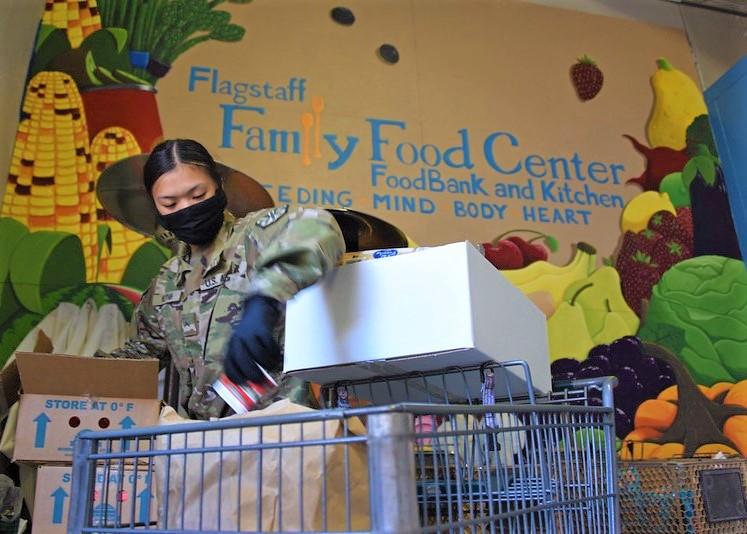States in the South and Southwest continued to track a spike in COVID-19 activity over the weekend, with Alabama and South Carolina recording record numbers of new cases and Arizona tripling the daily average of COVID-19 cases seen in the state in the last 2 weeks.
Today the Arizona Department of Health Services confirmed 1,014 new cases of the virus, raising the state's total to 37,705 confirmed cases.
But Arizona Governor Doug Ducey said late last week the rising case counts will not result in a second stay-at-home order. On Twitter, Ducey wrote that the surge in cases was expected.
"As our state gradually reopens & more people move about, we're seeing increased transmission, which is to be expected. This is happening around the country. To be clear, however: our hospitals have capacity & anyone who might need health care due to #COVID19 has access to it," he tweeted.
The Washington Post reported yesterday that at least 10 states in the US have seen an increase of 10% or more of new COVID-19 cases since Memorial Day weekend, 3 weeks ago. By now, every state in the US is reopened to some degree, with the earliest states having ended governor-issued stay-at-home orders on May 1.
Yesterday South Carolina recorded 799 new cases of the virus, bringing the state total to 18,795 cases, including 600 fatalities. Alabama saw 1,000 new cases tracked at the end of last week. Alabama has reported more than 800 cases each day since last week.
Pandemic fatigue
"What I'm afraid I see happening is people are kind of over it. This is old news; we're going to move on," said Michael Saag, MD, the director of University of Alabama Birmingham Medicine's division of infectious diseases, according to a report from Birmingham's ABC affiliate. Saag told the news station the increase corresponds to people who contracted the virus over Memorial Day weekend.
The North Carolina Department of Health and Human Services reported 983 new cases today, bringing that state's total to 45,102. Local news reports Governor Roy Cooper is considering making cloth face masks mandatory in that state.
All told, the United States is tracking around 20,000 cases per day and roughly 1,000 fatalities per day across the country. According to the Johns Hopkins University COVID-19 tracker, the official total stands at 2,105,482 cases and 115,998 deaths.
Cuomo warns of second wave
States that have already seen a peak of the first wave of activity are still vulnerable to a resurgence, warned New York Governor Andrew Cuomo over the weekend. Cuomo lashed out at bars and restaurants in Manhattan and the Hamptons as among the worst offenders in 25,000 complaints filed to the state in recent days about businesses not following reopening guidelines.
Cuomo said, "We are not going to go back to that dark place," according to Bloomberg News, in reference to a second wave of activity, and said he would reimpose restrictions on restaurants and bars if people do not follow the rules or practice social distancing.
Over the weekend New York state tracked 32 deaths from the virus on Jun 13, a record low since the outbreak began. On the same day, Cuomo tweeted a video of crowds of mask-less people in St. Mark's Place in Manhattan and said, "Don't make me come down there."
Tulsa braces for Trump rally
According to Tulsa World, the Tulsa City-County Health Department director wishes President Donald Trump's planned June 20 rally — the president's first rally in 3 months — would be rescheduled. Bruce Dart, MD, said Tulsa is seeing a spike in infections, and he's concerned about the ability to protect people, and the President, at the indoor rally.
"COVID is here in Tulsa, it is transmitting very efficiently," Dart said. "I wish we could postpone this to a time when the virus isn't as large a concern as it is today."
The rally is expected to draw as many as 20,000 Trump supporters. Those attending the rally must sign an online liability waiver that assumes all risks relative to COVID-19 exposure.
Elderly, others at higher risk
Finally, today in Morbidity and Mortality Weekly Report, new data from COVID-19 surveillance conducted by the Centers for Disease Control and Prevention shows that the elderly and those with underlying health conditions are still most at risk for contracting COVID-19 in the US, and that minorities are disproportionately infected with the virus.
From February through May 30, the most common underlying health conditions in COVID-19 patients were cardiovascular disease (32%), diabetes (30%), and chronic lung disease (18%). Hospitalizations were six times higher and deaths 12 times higher among those with reported underlying conditions compared with those with none reported.
The cumulative incidence of the virus was 403.6 cases per 100,000 persons, and was similar among males (401.1) and females (406.0), and highest among those 80 years of older (902.0). Thirty-three percent of cases were in Hispanic patients, 22% in Black patients, and 1.3% in American Indian or Alaska Native patients.
"These findings suggest that persons in these groups, who account for 18%, 13%, and 0.7% of the U.S. population, respectively, are disproportionately affected by the COVID-19 pandemic," the authors said.
The disproportionate racial distribution of COVID-19 cases was also evident in a recent poll, that shows Black Americans are more likely to know someone who died from the virus than white Americans. Eleven percent of Black Americans polled by NORC at the University of Chicago said they knew someone who died from the virus, compared to 5% of Americans overall and 4% of white Americans.




















